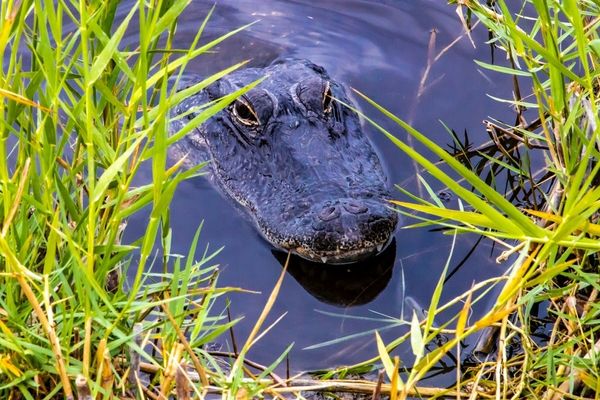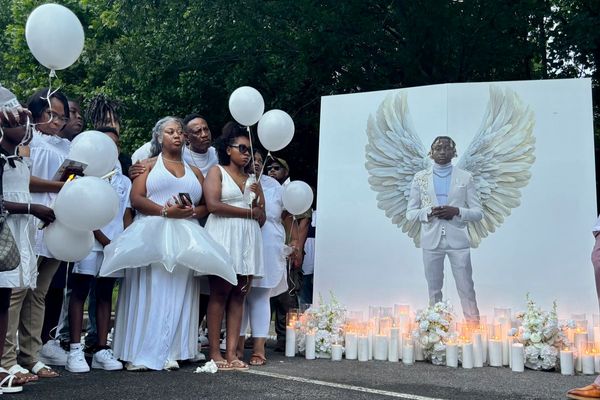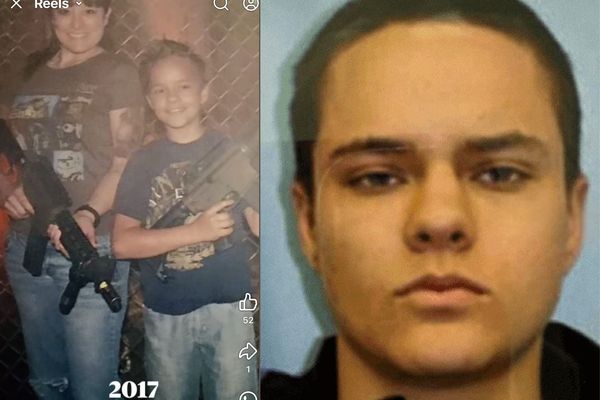
Taylor Humphrey can find you a baby name that fits your family’s personal brand, but it might cost you $30,000. That is the top end of what a package with the US-based baby-name consultant costs. Fortunately, she also offers a more accessible option for $350 and, for customers who are willing to share their experience of her service on social media, a $150 discount on any subsequent naming needs. A bargain, really.
Humphrey, who set up her company What’s in a Baby Name in 2015, has helped a number of high-profile (albeit top-secret) clients find the perfect baby name. She’s now taken to TikTok, posting advice, sharing lists and solving baby-name dilemmas for her 70.1k followers. (Sibling for Florence? Tricky, apparently, because the name sits between “high renaissance” and “cutesy vintage”. Humphrey suggests, among others, Daphne for a girl and Arthur for a boy.)
At the upper end of the spectrum, Humphrey caters to celebrities, influencers, professional athletes, politicians and tech executives, among others, who are keen on market research, brand-strategy development, feedback from thinktanks and comprehensive exploration of the family’s values and personal brand to make sure they make the right choice. At $1,500-$30,000, clients can expect indepth consultations, a video or storybook telling the story of how “Baby X” got their name, doula support and genealogy reports. For a paltry $350, Humphrey can supply a list of 15 names or feedback on the names you are considering, based on a questionnaire of a client’s preferences, tastes and values.
Humphrey is just one of a number of “baby-name influencers” on the rise across social media. UK-based YouTuber SJ Strum – who offers her consultancy services for free – shares unique baby-name suggestions on both her personal channel and her podcast, Baby Name Envy, while Canada-based Heidi Prunkl, who runs account @babynamesunday, shares weekly name ideas on YouTube and posts carefully curated reels featuring lists on Instagram of names as novel as, well, Novel, all displayed artfully against atmospheric backdrops and set to tinkly muzak. Prunkl also offers bespoke naming services, starting at $60.
All of which leads me to wonder whether society – which used to take name inspiration from family, religion and the monarchy – hasn’t, in fact, lost the plot slightly when it comes to naming babies. After all, it’s not just high- profile celebrities opting for quirky names now: every Tom, Dick, and Harry is, too – me included.
I’ve always loved names, I think, in part, because I love words and the shapes and sounds they make. I have 163 names listed on my phone for a baby that does not yet exist and, thanks to the likes of Humphrey and co, the list is growing. Although I haven’t yet been tempted to fork out thousands for professional help, when, back in 2021, my partner and I chose to name our son Fabian John Cosimo, I’d be lying if I said I hadn’t been influenced, at least a bit, by social media. Because, while I didn’t find his exact names on Instagram itself – his first name, Fabian, is an ode to Shakespeare’s Twelfth Night, our left-leaning values and my partner’s love of gardening (the name means broad-bean grower) – I do remember seeing more Balthazars than Benjamins on the accounts I followed and feeling increasingly liberated to make a brave choice. That’s not to say I don’t adore his names, I do. But my partner’s started saying “Fabian” and it’s a curious feeling seeing him wrapping his tongue and lips around a name social media, in a way, nudged me towards. He’s still working on Cosimo.
It seems I’m not alone, though, in wanting my child’s name to stand out. Last month, influencer Imogen Horton made up the name Oriavella for her second daughter. In fairness, Horton has previous, here: her first daughter is named Renaelia, another creation. (Incidentally, Imogen’s own name was invented, albeit accidentally, by William Shakespeare when his character Innogen’s name was misspelled as his tragedy Cymbeline was committed to print.) And, although some of the top baby names in the UK, according to BabyCentre’s annual Top 100 list, seem to be immovable (Oliver and Olivia are stalwarts), when you look further down 2023’s list, a few surprises jump out. For girls, we have Aurora (30, up 22 places), Violet (37, up 19 places) and Ophelia (90, a new entry). For boys, Sebastian (38, up 24 places), Mateo (63, a new entry) and Axel (76, a new entry) have surged. Plus, with more names being registered each year, even the most popular names will become less common as they make up a smaller percentage of the total.
So where has this newfound name bravery come from? A desire to stand out on crowded social media platforms, perhaps? Humphrey certainly thinks so. “In today’s age of social media, uniqueness is paramount,” she tells me. “Your name is your destiny. It’s your identity. It’s your brand. It’s the first impression people will ever have of you. I think parents are finally recognising that name choice can really dictate the course of their children’s lives.”

Choosing a name that might dictate the course of her daughter’s life was certainly on 40-year-old Suzana Barca’s mind when she came to name her now 22-month-old Phoenix Blaze. That it was unusual, though, was incidental. “We simply wanted a strong, powerful name to describe someone who will rise stronger when life tries to put them down,” she explains, which suggests that, perhaps, we use unique names to assign our children qualities or traits we admire. (I’m still trying to convince my partner that Lucky would be a great option.)
On the hunt specifically for a more unusual name, though, was Dominic Lee, 35, who works in a primary school and says he “notices name trends more than most” because of this. He chose the name Caspian for his son, who was born in February. “We definitely didn’t want a run-of-the-mill name and not a name that’s currently in the zeitgeist,” he says. “We did want one that was unusual and would make people notice him.” Carol Bajenting, 43, was similarly minded when she chose her 11-year-old daughter Zadie’s name. “A rare name will be easily remembered and it’s good to have that positive effect on other people,” she says. “It was important for us that our daughter was her own person and that started with her name. We didn’t want her to be compared or benchmarked against anyone else with the same name.”
Unsurprisingly, Boudicca Woodland, 46, has something to say about being compared to someone of the same name. “I often get asked where I’ve parked my chariot,” she says. Woodland, whose name came about when her mother looked out of her London hospital room after a tricky birth and saw, across the River Thames, the statue of Boudicca, decided to play it slightly safer with her own children’s names, plumping for Alfred Devereux, 13, and Seren Ariande, 10. “We went for traditional-ish followed by an unusual middle name,” she explains. “I was bullied at times for my name and ended up choosing to go by my middle name, Lee, for a few years as a teenager at a new school.” Although Woodland loves her name now, she wanted to give her children a choice as they were growing up, lest they, too, felt singled out. “It must be hard for a quiet child to have a wild name.”
Although “wild names” might seem like a modern phenomenon, encouraged, perhaps, by the likes of Humphrey, Prunkl, and Strum, moving away from traditional names and towards something a little different is by no means a new trend. “It’s happened before,” says Richard Coates, a linguist and professor emeritus of onomastics (the study of proper names) at the University of Bristol. “The English stopped using most Anglo-Saxon names in about the 12th to 13th centuries and replaced them with Norman-French ones. We’ve had inflows of names from France, the Mediterranean lands and the Celtic-speaking countries over the centuries, partly replacing earlier stocks.” Even gender-neutral names, the rise of which has been particularly notable in the past few years, aren’t a new thing.
“In the middle ages some given names, such as Philip and Nichol, could be used ambiguously,” says Coates. “What’s different this time is the extent to which the new names are new creations.”
Not everyone, though, is a fan of a made-up moniker. According to Lucy Higginson, 53, whose children are Madeleine, 18, and Alexander, 14, there’s simply no need for invented names, which she deems to be egotistical and “the definition of naff”. There are plenty of great names, she explains, adding that she pities the school teachers who have to spell the names parents have made up. “It seems like a bleating plea for attention,” she says. “I think it’s a real curse to saddle a child with a name they will have to spell out for the rest of their lives. A name has to fit for life. Lots of people name children because it fits the baby, but that baby will hopefully be a 50-year-old one day, who will want to be taken seriously and treated professionally.”
How a name will be received at school or within a workplace has, typically, been a key concern for parents, with many worried that a child with an unusual name will be bullied at school and then not taken seriously at work. However, Strum has noticed fewer clients approaching her with this anxiety. “People don’t see names as holding you back any more,” she says. “Whereas before, if you wanted your child to have a serious job, you might give them a serious name – an Elizabeth or a Margaret – now we’re much more playful with our names.”
It makes sense, too. As names become more varied, we, as a society, become more accustomed to seeing and hearing unusual ones. It’s not entirely inconceivable, then, that we might, one day, vote in a prime minister called Sage or Wren or Atlas. Possible, too, is that, soon, the popular names today will eventually be seen as rare. Will Olivia or Oliver, in due course, be deemed, by Humphrey or Prunkl or Strum, to be “unique gems”? Perhaps.
In the meantime, I suspect the best we can do is follow the advice of Bajenting, mum of Zadie. “I think it’s a privilege for parents to choose a name for their child. And this privilege is supposed to be fun and liberating,” she says. “But that privilege comes with a responsibility later on to explain to the child the thinking process in deciding their name.” And, while I’m a huge advocate of unusual and surprising names, I, personally, can’t imagine that conversation – one you’d hope would be intimate and heartfelt, however unorthodox the choice – starting with: “So we paid $30,000…”







